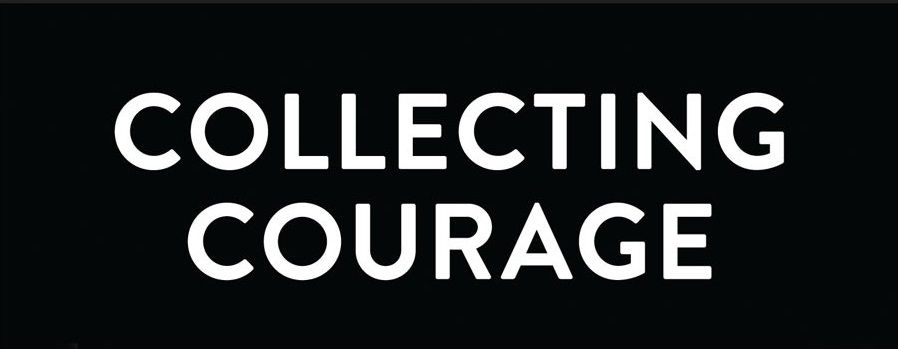Collecting Courage: Joy, Pain, Freedom, Love, edited by Nneka Allen, Camila Vital Nunes Pereira and Nicole Salmon, Gail K. Picco Books, Civil Sector Press, November 24, 2020, 227 pp., $39.99 CAD/$29.99 USD
Canada’s charitable sector consists of over 170,000 charities and nonprofits, producing 8.5% of Canada’s Gross Domestic Product according to Statistics Canada. Sectorsource.ca states that, in 2010, 84% of Canadians over the age of 15, gave charitable donations. There are over 2.4 million people employed in the sector according to Statistics Canada, and 30,000 of those people are members of the Association of Fundraising Professionals (AFP).
Although a great deal of their work focuses on aiding economically disadvantaged, marginalized and racialized populations, there are few statistics available about the intersection of race and culture within the sector. As attention on issues of diversity, inclusion and racism come to the forefront, it has exposed a glaring absence of diversity and inclusion in the most influential spaces and power centres in the sector, including leadership and fundraising.
Collecting Courage is a revealing collection of autobiographical stories told by 14 Black fundraisers about their experiences in the nonprofit sector. It is an honest, raw account of their experiences working in what is perceived as the “caring” sector. It uncovers many unexpected truths about the sector as each author tells their own story of how they peeled back the layers of the onion to reveal a pungent, space where tears and pain were, sometimes, impossible to avoid.
This book tells the truth. These 14 fundraisers, workers and leaders endured self-denial, self-doubt and injustice while striving and eventually achieving in the nonprofit world—“while Black”. Some struggled to regain their identity that was lost in the aspirations to ‘fit-in” to a war zone riddled with friendly fire.
It reads like an expose about the evil tactics of enemies – the managers, leaders and co-workers many who were oblivious to their own privilege and a few who were deliberate and aware, and chose to purposely dull the shine of their Black colleagues, knowing that there would be no consequence.
“By nature and definition, the philanthropic sector is a white-dominated space…Assimilation is often mandated if you are in a front-facing role interacting with donors” (Muthoni Kariuki)
“Their boards and executive teams are strongholds that reflect Afro-phobic culture among white leaders and white donors” (Mide Akerewusi)
“ …we may straddle that place between wanting to tell our stories in our authentic voices and restricting our voices to navigate more easily through the complexities of a society, much of which is unready and often unwilling to hear us.”(Niambi Martin-John)
For these writers, the images in the mirror are a lot farther away than they appear.
Many of them described times when they had to abandon their true identities to avoid being silenced, and many times for many of the writers, even that proved to be no guarantee of safety from the ultimate “career limiting move” as one author described it.
Despite the challenges chronicled in the pages of Collecting Courage, the authors are one triumphant success story after another. They share intimate details about their own struggles to become leaders in the sector—directors, professors, executive directors, CEOs, CFREs, PhDs, MBAs and fundraising executives who have raised millions of dollars for some of North America’s most prestigious schools and charitable organizations. They are pioneers, mentors and high-achievers. Their tenacity shines through as they round out each intensely personal account with an abundance of confident optimism.
These courageous authors put it all out there in a compelling style that breaks all of the rules of engagement that we have come to accept in the sector. We are used to being nice about these things that are far from nice, in an industry where nice is the currency used by well-meaning do-gooders to generate millions of dollars for good causes. Although each writer addresses this from their unique professional experiences and perspectives, the following lines from Naimah Bilal on page 153 inform what could be described as the heart of the matter:
“… just beneath the surface of a veneered magnanimity – is a nefarious desire of some would-be benefactors to distract us from the ill-gotten means through which their wealth was accumulated …We sit upon a structural problem that can only be addressed when we uproot the whole dang tree of racism, white supremacy, and their poisoned intersections with capitalism”
For readers who are “Black” people, who have lived through similar experiences on their professional journeys, the truths told in this book affirm our resilience and strength as we continue to cultivate our Joy, Freedom and Love and to support one another as we overcome the pain of striving and succeeding despite being “ the antithesis of the nonprofit leadership ideal” (Mide Akerewusi).
When you get to the end, in addition to a powerful final chapter written by Nneka Allen that brings the stories full-circle as it soothes, heals and inspires, there is a thought provoking prose and an extensive bibliography that is required reading for those who want to understand and to commence the revolution in the charitable nonprofit sector.
Ginelle Skerritt is a leader and influencer in the non-profit sector, where she has worked for more than 30 years, and a member of the Review Panel for The Charity Report Literary Circle.








